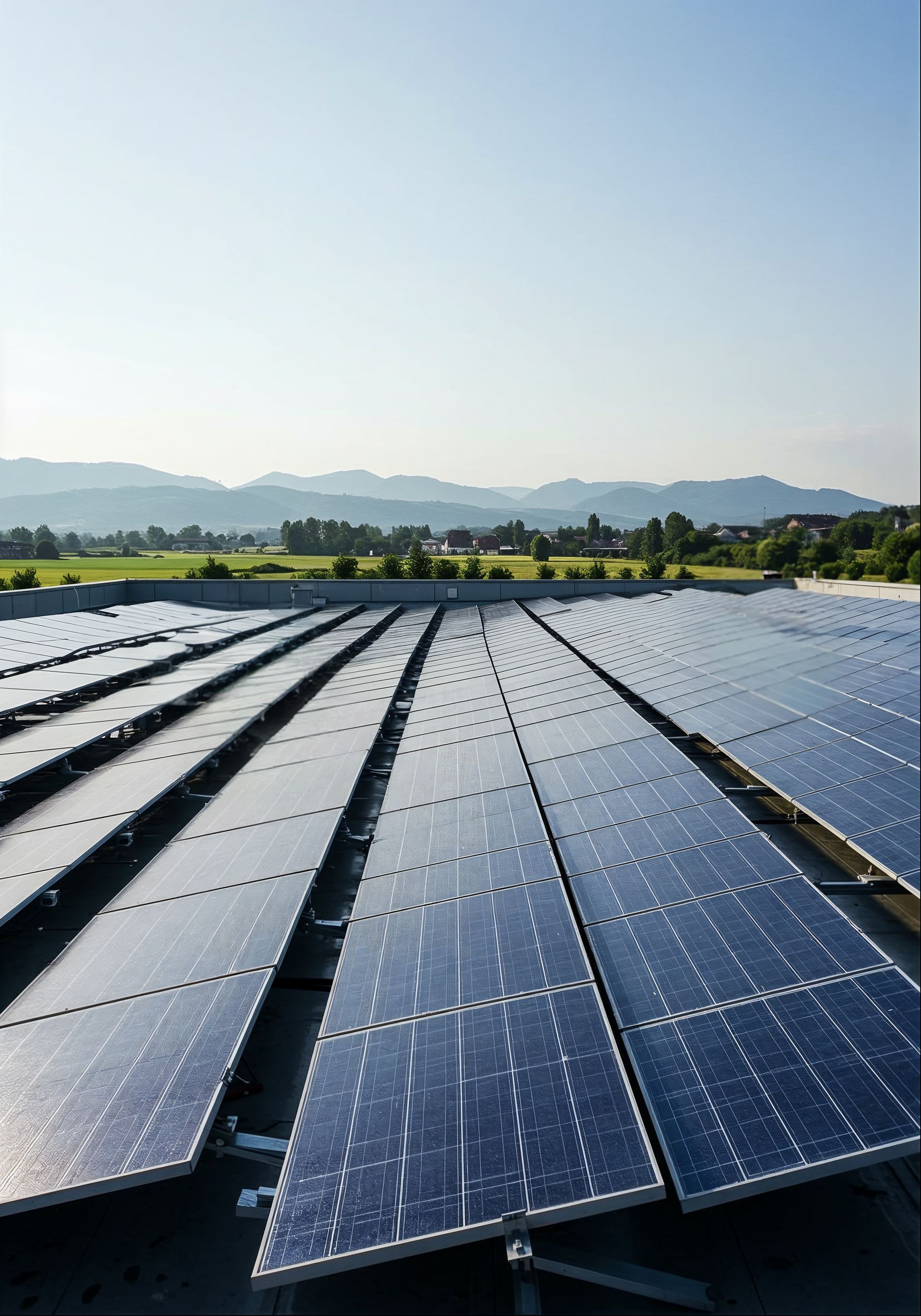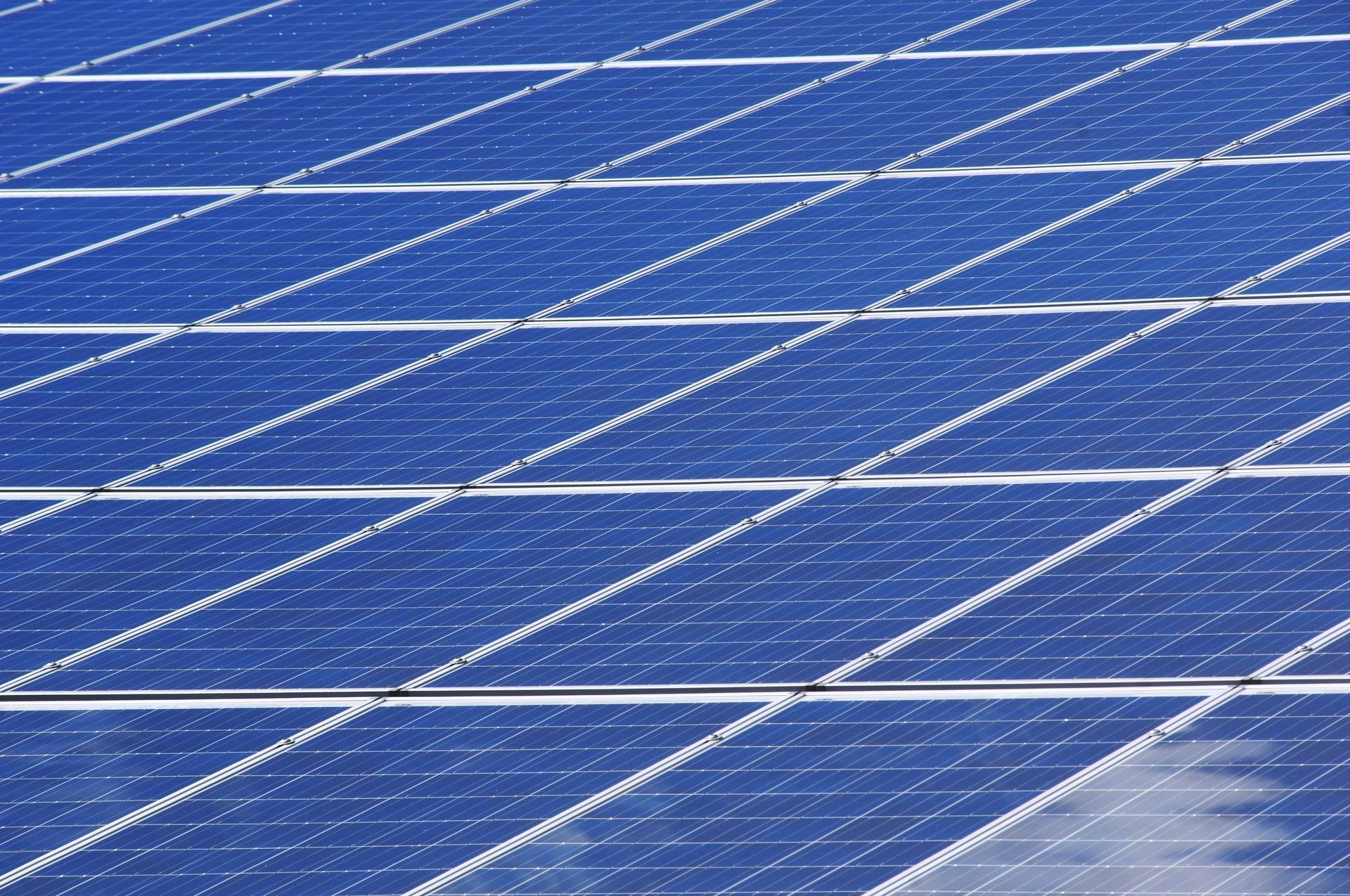Top Benefits of Solar Energy Systems for Residential Homes
- Thorough Cleaning: Professionals use specialized equipment and non-abrasive cleaning solutions that remove buildup without damaging the glass or underlying technology.
- Safety First: Climbing onto rooftops to clean panels is dangerous. Experienced technicians know how to clean safely and effectively.
- Optimized Efficiency: Clean panels absorb more sunlight, directly increasing energy production.
As energy costs continue to rise, many homeowners in Portland and across the country are searching for sustainable and cost-effective ways to power their homes. One of the most reliable solutions available today is the installation of solar energy systems. With advances in technology and growing awareness of environmental responsibility, solar power has become one of the fastest-growing energy solutions for residential properties.
At
Infinity Solar USA, we specialize in delivering high-quality residential
solar systems that help families lower energy bills, increase home value, and reduce their carbon footprint. In this article, we’ll explore the top benefits of solar energy for homeowners and why investing in solar is one of the smartest long-term decisions you can make.
Significant Savings on Energy Bills
One of the most immediate and noticeable benefits of installing
solar energy systems is the reduction in monthly energy bills. Traditional electricity rates can be unpredictable, with increases over time due to supply and demand, utility regulations, and fuel costs. By generating your own electricity through solar panels, you can stabilize your expenses and shield yourself from rising utility costs.
Depending on your energy usage and the size of your solar installation, you may be able to offset a large portion—or even all—of your household’s energy consumption. Many homeowners in Portland find that residential solar systems provide savings that quickly add up, often paying for themselves in a matter of years. Over the lifespan of your panels, the total savings can amount to tens of thousands of dollars.
Enhanced Solar Panel Efficiency
Today’s solar panels are more efficient and durable than ever before. The term solar panel efficiency refers to the amount of sunlight a panel can convert into usable electricity. With modern technology, many residential systems achieve high efficiency ratings, meaning you can produce more power using fewer panels.
For homeowners with limited roof space, efficiency plays a crucial role in maximizing energy output. In Portland, where seasonal weather patterns include both sunny and cloudy days, high-efficiency panels ensure consistent performance year-round.
Infinity Solar USA offers cutting-edge solar equipment designed to perform reliably in the Pacific Northwest climate, giving homeowners peace of mind and dependable energy production.
Increased Property Value
Installing residential solar systems does more than lower your energy bills—it also enhances the value of your home. Multiple studies have shown that homes with solar panels sell faster and at higher prices compared to those without. Prospective buyers are often drawn to the promise of long-term energy savings and the reduced reliance on traditional utilities.
In markets like Portland, where eco-conscious living is especially important, solar-powered homes stand out as forward-thinking investments. By choosing to install a solar system, you’re not just benefiting from immediate savings—you’re also making your property more attractive in the long term.
Environmental Benefits and Energy Independence
Another compelling reason to invest in
solar energy systems is the positive impact on the environment. Solar power is a renewable energy source that significantly reduces greenhouse gas emissions and decreases reliance on fossil fuels. By switching to solar, homeowners contribute to a cleaner, more sustainable future while setting an example for their community.
In addition to reducing your carbon footprint, solar panels also increase your household’s energy independence. Instead of relying solely on utility companies, you can generate your own power. When paired with battery storage options, homeowners can store excess electricity for use during power outages or peak demand times. This level of control provides greater resilience and security for your home.
Long-Term Reliability and Low Maintenance
Residential solar systems are built to last, with most panels offering warranties of 20 to 25 years. Once installed, solar panels require minimal maintenance, making them an attractive long-term investment. The primary task involves occasionally cleaning panels to remove dust, leaves, or debris to maintain maximum solar panel efficiency.
Homeowners can expect consistent energy production throughout the system’s lifespan. With no moving parts and durable construction, solar panels are designed to withstand various weather conditions, including rain, snow, and wind common in Portland. This reliability ensures that your investment continues to deliver value for decades.
Why Choose Infinity Solar USA?
At
Infinity Solar USA, we are committed to helping Portland homeowners make the switch to clean, renewable energy. Our team provides expert consultation, custom design, and professional installation of
solar energy systems tailored to your household’s needs. We use only the highest-quality solar panels and technology to ensure maximum performance and long-term savings.
Whether you’re looking to lower energy bills, increase property value, or reduce your environmental impact, our team is here to guide you every step of the way. With local expertise and a customer-first approach, we make the transition to solar simple, seamless, and rewarding.
Contact Infinity Solar USA for Residential Solar Panel Installation
If you’re ready to enjoy the many benefits of residential solar systems, now is the time to take action.
Infinity Solar USA proudly serves homeowners in Portland, OR, with top-quality solar solutions designed to maximize efficiency and savings.
Call us today at
(800) 818-0598 to schedule your consultation and take the first step toward energy independence. Let our experts design a solar solution that works for your home and your future.
Frequently Asked Questions (FAQ)
How long does it take to install a residential solar system?
Most installations take between one to three days, depending on the system size and complexity. After design approval and permitting, our team completes the work quickly with minimal disruption.
Will solar panels work during cloudy or rainy days in Portland?
Yes. While solar panels perform best under direct sunlight, they still generate power on cloudy or rainy days. Modern panels are designed to capture diffused sunlight and maintain reliable performance year-round.
What kind of maintenance do solar panels require?
Solar panels require very little maintenance. Occasional cleaning to remove dirt or debris is typically all that’s needed to maintain optimal solar panel efficiency. Professional inspections may be scheduled every few years.
Can solar panels increase the value of my home?
Absolutely. Homes with solar energy systems often sell at higher prices and appeal to eco-conscious buyers. Solar is seen as a long-term asset that reduces operating costs for the next homeowner.
How long will my solar panels last?
Most panels come with warranties of 20 to 25 years, and many continue producing electricity well beyond that. With proper care, your system can deliver reliable performance for decades.
More Blog Posts
More Guides For You From Our Help Center
Service and Troubleshooting
Understanding your solar system performance
How to schedule a repair
Solar Financing and Incentives
How does net metering work?
- How Net Billing Works (And Why Export Credits Are Your New Best Friend)
- How "Buy All, Sell All" Works in Solar (And Why It’s a Great Deal for You)
- How Monthly Net Metering Works (Spoiler: It’s Like a Bank for Your Energy)
- What is Net Metering and Why It Matters in the Solar Industry?
- What Is 1:1 Net Metering, and Why Should You Care? (Hint: It’s Awesome)
Solar financing. Understanding your options
- Explore Your Financing and Cash Options for Going Solar with Infinity Solar USA
- Commercial Solar Solutions: What You Need to Know from Infinity Solar USA
- Solar Installation Costs and Financial Incentives: What You Need to Know from Infinity Solar USA
- Why Solar Loans Reamortize in Month 19: A Closer Look
System Performance
How to optimize your solar systems performance
How peak sun hrs works in solar
How does roof pitch and orientation affect solar production?
How shading and irradiation affect solar production
Solar 101
Understanding your solar energy savings
Different purchase options:
How do I save money with solar?
Solar Process
Step 1 Proposal Introduction
Step 2 Construction Pipeline Process
Step 3 Permission to Operate
Service and Troubleshooting
Understanding your solar system performance
How to schedule a repair
Solar Financing and Incentives
How does net metering work?
- How Net Billing Works (And Why Export Credits Are Your New Best Friend)
- How "Buy All, Sell All" Works in Solar (And Why It’s a Great Deal for You)
- How Monthly Net Metering Works (Spoiler: It’s Like a Bank for Your Energy)
- What is Net Metering and Why It Matters in the Solar Industry?
- What Is 1:1 Net Metering, and Why Should You Care? (Hint: It’s Awesome)
Solar financing. Understanding your options
- Explore Your Financing and Cash Options for Going Solar with Infinity Solar USA
- Commercial Solar Solutions: What You Need to Know from Infinity Solar USA
- Solar Installation Costs and Financial Incentives: What You Need to Know from Infinity Solar USA
- Why Solar Loans Reamortize in Month 19: A Closer Look
System Performance
How to optimize your solar systems performance
How peak sun hrs works in solar
How does roof pitch and orientation affect solar production?
How shading and irradiation affect solar production
Solar 101
Understanding your solar energy savings
Different purchase options:
How do I save money with solar?
Solar Process
Step 1 Proposal Introduction
Step 2 Construction Pipeline Process
Step 3 Permission to Operate



